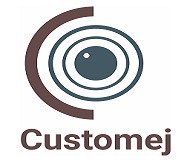Welcome to the world of insurance! It’s no secret that navigating through different types of insurance can be overwhelming and confusing. From health insurance, car insurance, to life insurance, there are many options available that cater to specific needs. But don’t worry, we’re here to break it down for you. In this guide, we’ll cover everything you need to know about insurance in a clear and concise manner so that you can make informed decisions when it comes to protecting yourself and your loved ones.
What is Insurance?
Insurance is a contract between an individual or organization and an insurance company. In exchange for a premium, the insurance company provides coverage for potential financial losses in the event of unexpected situations such as accidents, illnesses, and other risks depending on the type of insurance. Essentially, it’s a safety net that helps mitigate financial risks and provides peace of mind.
Types of Insurance
As mentioned earlier, there are various types of insurance available. Here are some common ones that you may come across:
1. Health Insurance
Health insurance covers medical expenses such as doctor visits, hospital stays, prescription drugs, and other healthcare services. It helps individuals avoid high out-of-pocket costs and ensures access to necessary healthcare.
2. Car Insurance
Car insurance provides coverage for damages or injuries resulting from car accidents, theft, vandalism, and other incidents. In many countries, having car insurance is mandatory in order to drive legally on the roads.
3. Life Insurance
Life insurance provides financial protection for your loved ones in the event of your death. It can help cover expenses such as funeral costs, outstanding debts, and provide income replacement for dependents.
4. Homeowners/Renters Insurance
Homeowners/renters insurance covers losses related to your home or rental property such as damages from natural disasters, theft, and liability claims. It also provides coverage for personal belongings.
5. Travel Insurance
Travel insurance provides coverage for unexpected events that may occur during travel such as trip cancellations, medical emergencies, and lost luggage.
How Insurance Works
To better understand how insurance works, let’s use car insurance as an example. First, you purchase a policy from an insurance company by paying a premium. If you get into a car accident and file a claim for damages, the insurance company will assess the situation and determine if it falls under your coverage. If it does, they will provide compensation for the damages up to the limit specified in your policy.
Work with Feeser Insurance if you’re interested in getting any type of insurance for yourself or your property.
Insurance Policy Components
An insurance policy is a legal document that outlines the terms and conditions of your coverage, including the premium amount, coverage limits, deductibles, and exclusions. It’s important to carefully review and understand your policy before making any decisions.
Premiums, Deductibles, and Claims
Premiums are the amount of money you pay to the insurance company for your coverage. Deductibles are the out-of-pocket expenses you have to pay before the insurance company covers the rest of the costs. And claims refer to when you request compensation from your insurance provider for a covered loss or damage.
Here are a few examples:
- Auto insurance premiums:$100 per month
- Homeowners insurance deductible: $1,000 per claim
- Health insurance claims for doctor visit: Covered after a $20 co-pay
- Home insurance premiums: $1,200 per year
- Health insurance premiums:$300 per month
- Life insurance premiums: $50 per month
The Importance of Insurance
Insurance is not only beneficial for individuals but also for society as a whole. It helps stabilize financial losses and promotes economic growth by providing individuals and businesses with protection against unforeseen events. Additionally, having insurance can bring peace of mind knowing that you are financially protected in case of emergencies.
Is Insurance an Asset?
Technically, insurance is not considered an asset as it doesn’t generate income or appreciate in value over time. However, it serves as a financial safety net and can be viewed as an investment in protecting one’s assets and future.
How to Choose the Right Insurance
With so many options available, it can be challenging to determine which insurance is best for you. Here are some things to consider when choosing the right insurance:
- Assess your needs: Think about your current situation and what risks you may face. This will help you determine what type of insurance is necessary.
- Compare prices and coverage: It’s essential to shop around and compare different insurance providers’ prices and coverage options before making a decision.
- Read the fine print: Before signing any insurance contract, make sure to carefully review the terms and conditions, including exclusions and limitations.
Insurance is an important aspect of financial planning that offers protection and peace of mind in the face of unexpected events. By understanding the basics of insurance and choosing the right coverage for your needs, you can ensure a secure future for yourself and your loved ones. Remember to regularly review your insurance policies and make updates as needed to stay adequately protected. We hope this guide has helped clear up any confusion or questions you may have had about insurance.


